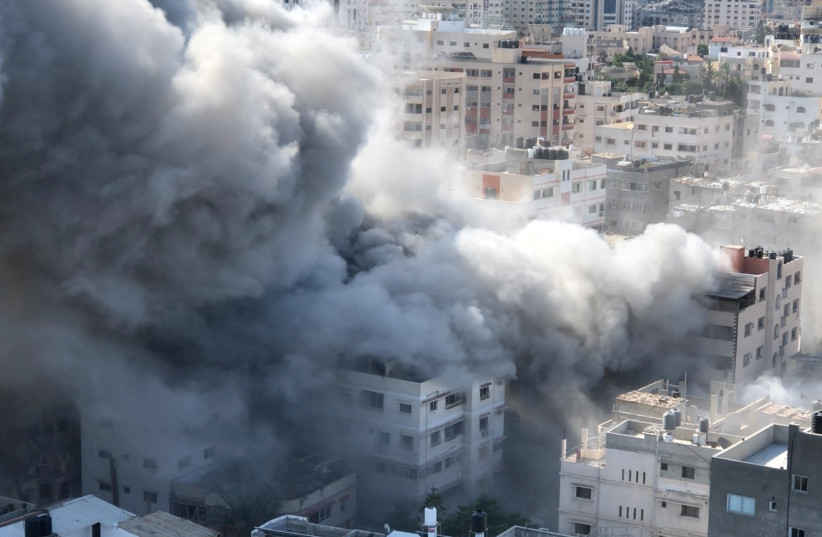US President Joe Biden hinted that he could support a Gaza ceasefire if Hamas released all the 222 hostages it seized from southern Israel on October 7.
During a White House event, a reporter asked him, “Is the United States supporting a hostage for a ceasefire deal?”
Biden responded, “We should have a ceasefire,” he said and then corrected himself.
“We should have the hostages released and then we should talk,” Biden said.
He spoke as the Israeli army has amassed at the Gaza border and is prepared for a ground campaign to oust Hamas from the Strip.

The US has advised Israel to hold off on a ground assault in the Hamas-controlled Gaza Strip and is keeping Qatar – a broker with Hamas – apprised of those talks, sources said.
The White House, Pentagon, and State Department have stepped up private appeals for caution in conversations with the Israelis.
Attempts to release hostages meet limited success
The US concern comes amid limited success by third-party brokers such as Egypt and Qatar to free hostages.
Hamas late Monday night freed two Israeli captives Nurit Cooper (79) and Yochaved Lifshitz (85) who had been taken from the Nahal Oz Kibbutz.
Their husbands Amiram Cooper (85) and Oded Lifshitz (83) remain in captivity.
The Prime Minister’s Office said that the “IDF and the security forces have worked hard in the last few days in all avenues to bring about their release and to overcome the many obstacles Hamas places in front of them.”
The two women were returned to Israel via the Rafah crossing and turned over by the International Red Cross to the IDF. They then went to Ichilov Medical Center for treatment and to be reunited with their families, the Prime Minister's Office stated.
The PMO thanked both Egypt and the Red Cross. It pledged that Israel would continue to do everything in its power to free the hostages and locate those who have been missing since the October 7 attack.
Nahal Oz, which lost a third of its members in the attack, called for the release of all the captives.
Cooper and Lifshitz were released 48 hours after two American women were freed.
The hostage releases came as Israel has allowed three convoys of humanitarian assistance into the Gaza Strip for three days straight.
The shipments of food and medicine that were inspected by Israel were the first goods to enter the Strip since Hamas infiltrated Israel on October 7, killing over 1,400 civilians and soldiers. According to Hamas, close to 5,000 Palestinians have been killed since then; Israel says that this is due to both IDF aerial strikes or failed Palestinian rocket launches.
Israel has closed its two crossings into Gaza and stopped all food, fuel, and electricity provided through those passages from entering the coastal enclave until such time as all of the hostages have been released.
The shipments that have gone via Egypt, which have amounted to slightly less than 60 trucks over three days, are far less than the minimum of 100 trucks a day that are needed.
Israel’s aerial bombing of Gaza, the displacement of 1.4 million residents – more than half of the 2.3 million population – and the blockade of the Strip, have all strengthened calls for a ceasefire.
European Union foreign ministers met in Luxembourg on Monday to discuss the need for a humanitarian pause to the fighting.
In a briefing at the White House, US National Security Council spokesperson John Kirby dismissed questions about the possibility of a ceasefire in exchange for the hostages. Hamas could at any moment simply release all of them, he said.
“Here’s an idea: They [Hamas] can release them all now,” Kirby said. “They can let them go now because they can release them all now. Just let them go now because these people did not do anything wrong. They are just innocent civilians caught up in this conflict. Let them go now.”
Reuters contributed to this report.
